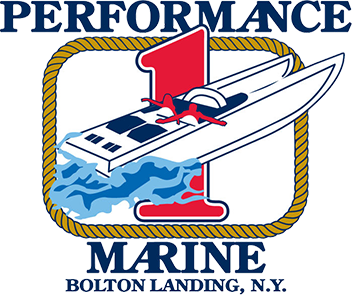Local Groups Support DEC Invasive Species Regs, But Call for Something Stronger
State Won’t Expand Lake George Program, Says Commissioner Joe Martens
New regulations proposed by the state’s Department of Environmental Conservation to control the spread of aquatic invasive species are “just one tool,” and are not expected to prevent the transportation of invasive species everywhere, according to Commissioner Joe Martens.
Speaking before a legislative budget hearing in Albany on January 29, Martens said the new regulations would increase public awareness about the threats posed by invasive species to the ecosystems of water bodies.
“Creating awareness is half the battle,” he said. “It’s impossible to police every place, all the time.”
The regulations would require every boat launched from a DEC site to be free of invasive plants and animals before entering the water.
The proposed regulations would be enforced only at DEC launches, parks and campgrounds and not at municipal or privately owned launches. Nor would they apply to launches operated by any other state agency, such as the Office of Parks and Recreation.
While supporting the regulations as a necessary and important first step, local organizations and officials have urged the DEC to strengthen and broaden its efforts to combat invasive species.
“We would like to see more comprehensive steps taken in the near future to increase protection of our waterways, such as a statewide transport law,” said Walt Lender, the executive director of the Lake George Association.
“Such a law would provide the more comprehensive protection for all launches across the state that is not covered under these proposed regulations. While it is encouraging that counties around Lake George have passed their own transport laws, a statewide law would provide better comprehensive spread prevention not only for Lake George but also for other waterbodies across the state,” said Lender.
The SAVE Lake George Partnership, a group composed of representatives of The Fund for Lake George and the Towns of Bolton, Lake George, Chester and Queensbury and the Village of Lake George, said the new regulations must “be accompanied by a comprehensive prevention system such as now being established on Lake George that will make New York State a model for the nation.”
According to Peter Bauer, the executive director of the Lake George-based environmental protection organization, Protect the Adirondacks, DEC’s proposed regulations are inadequate at best.
“The proposal is largely a symbolic gesture when measured against the spread of invasive species across New York and the Adirondack Park. We need the DEC leaders and Cuomo Administration to be much more ambitious in their thinking, planning and actions to control invasive species,” said Bauer,
According to Bauer, flaws in the proposed regulations include: not stating who will be responsible for enforcement; not setting a penalty or fine for violators; not providing for decontamination.
“These regulations are limited in scope and effectiveness. New York needs a comprehensive statewide aquatic invasive species prevention, interdiction, control and education program based on mandatory boat inspections and decontaminations and criminalizing the transport and launching of infested boats,” said Bauer.
But New York State is unlikely to enact a statewide mandatory inspection program similar to the one that will be implemented on Lake George this spring, said Commissioner Martens.
“We won’t replicate the Lake George experience everywhere in the state. It’s not possible, financially, and it’s not necessary. Not all lakes get the amount of boat traffic that Lake George gets, and not all lakes have the same aquatic environment. One size does not fit all,” Martens told the state legislators.
Moreover, New York State has not committed itself to supporting indefinitely Lake George’s mandatory inspection program, Martens indicated.
“We’re regarding the Lake George mandatory inspection program as a two year pilot project. We hope it works in the way that people hope it will, and that it’s a success. But there are a lot of different ways to approach the invasive species problem,” said Martens.





